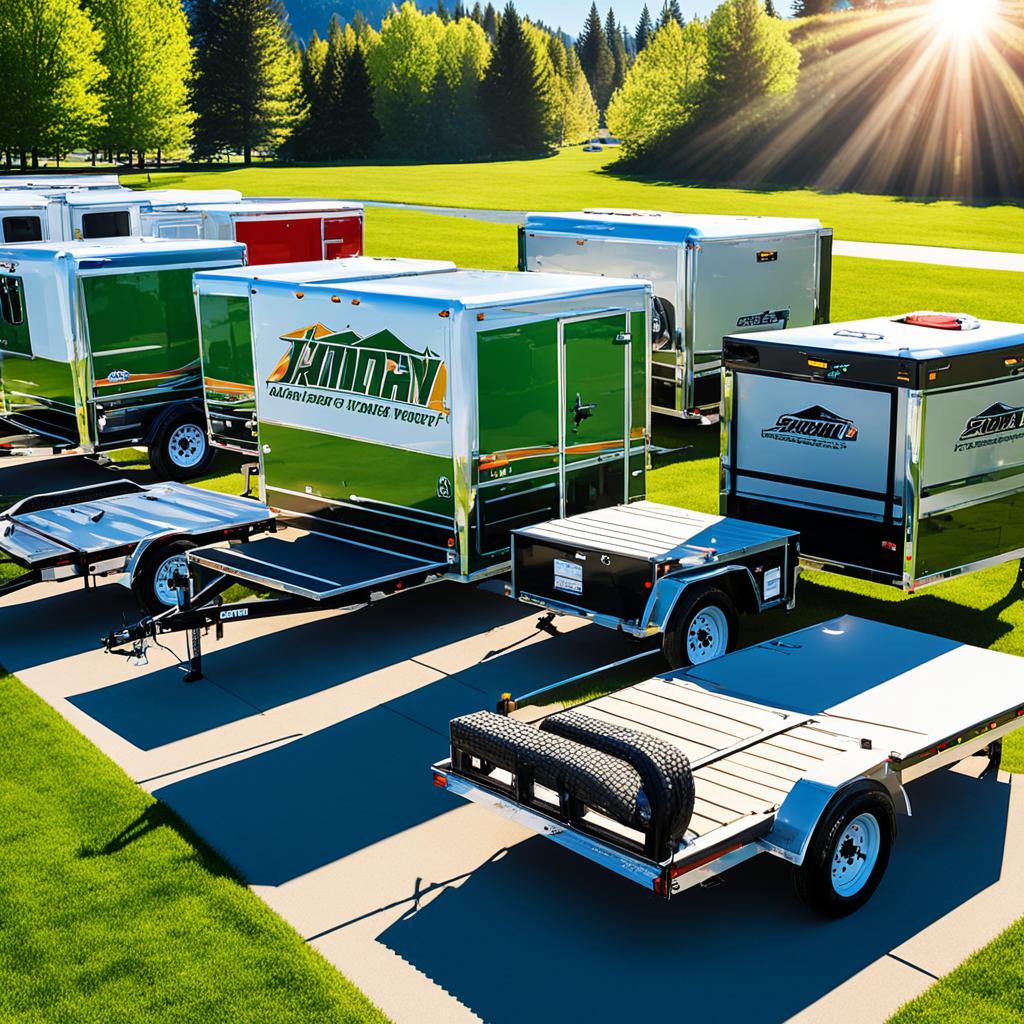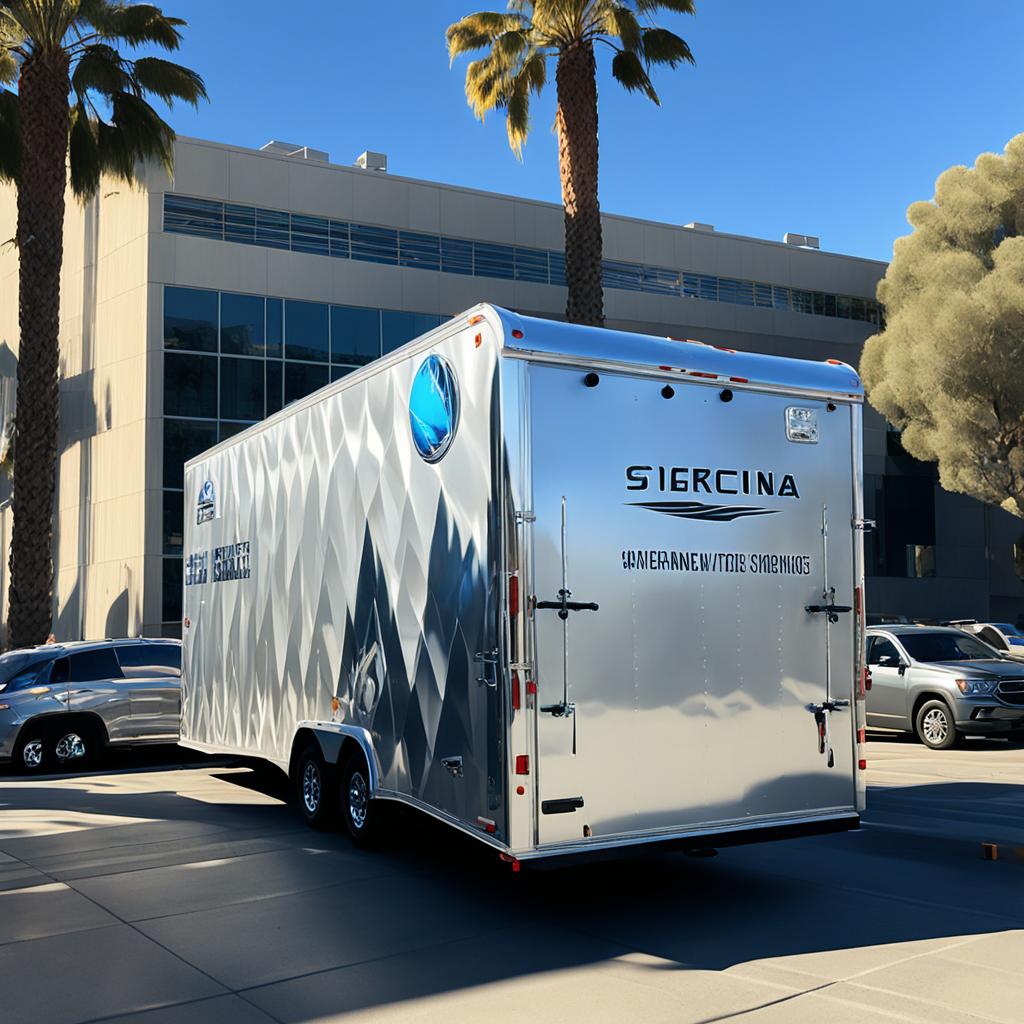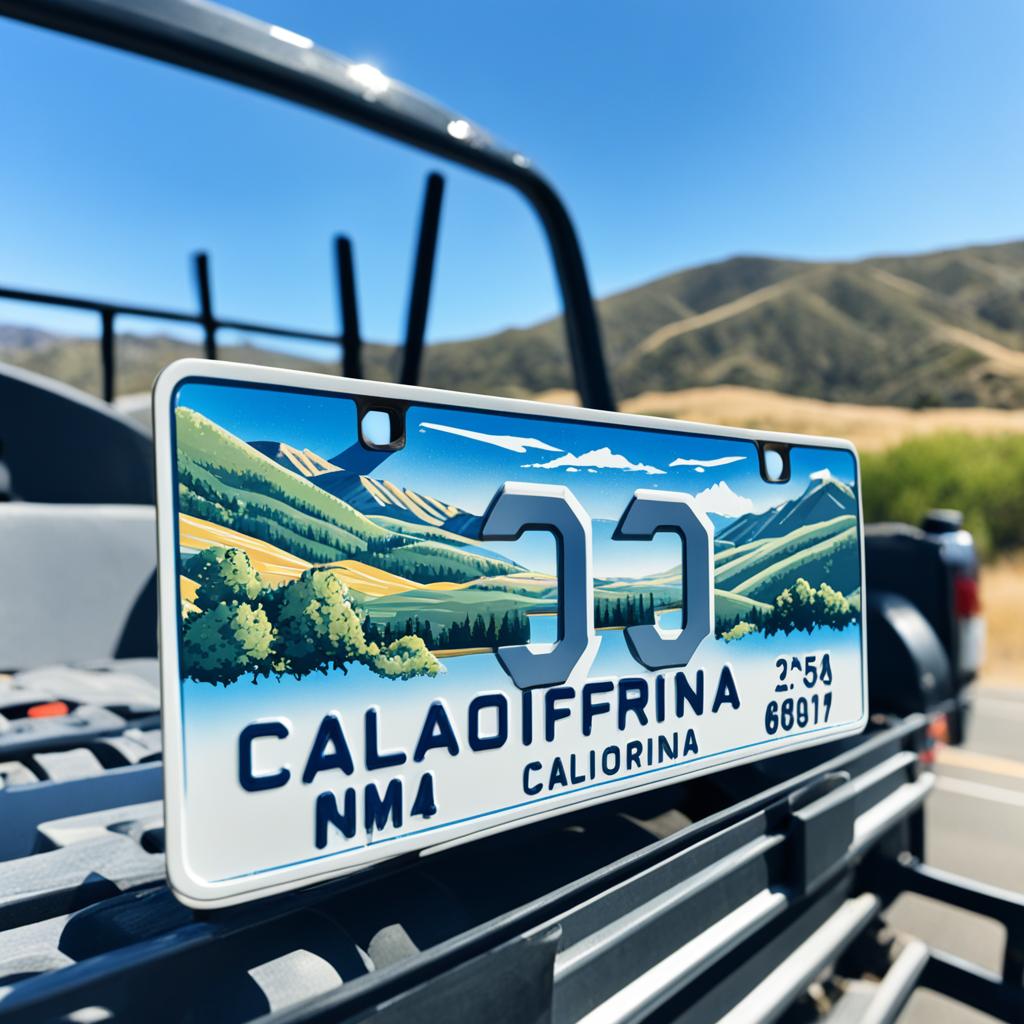When it comes to owning a trailer in California, there are certain obligations and responsibilities that you need to be aware of. One question that often arises is whether you have to register your trailer annually. So, do you have to go through the hassle of renewing your trailer registration every year in California?
Stay tuned as we explore the registration requirements for trailers in California and shed light on the annual registration process. Find out the exceptions and discover the specific regulations you need to adhere to for different types of trailers. Understanding the rules and procedures will not only help you stay compliant but also save you from potential penalties and legal consequences.
Types of Utility Trailers and their Uses

Utility trailers come in different sizes and shapes, each serving a specific purpose. Some common types of utility trailers include:
- Lowboy Trailers: These trailers have a low deck height, making it easier to load heavy machinery or equipment.
- Car Haulers: Designed specifically for transporting cars, these trailers have ramps or hydraulic lifts for easy loading and unloading.
- Dump Trailers: Ideal for hauling loose materials like gravel or debris, dump trailers have a hydraulic lifting mechanism that allows you to unload the contents.
- Enclosed Utility Trailers: Offering protection from the elements, these trailers are commonly used for transporting valuable equipment or goods securely.
- Flatbed Utility Trailers: Known for their versatility, flatbed trailers have an open deck, making them suitable for carrying oversized items or large quantities of materials.
These utility trailers have various uses depending on their design and features:
- Moving Equipment: Utility trailers provide a convenient way to transport heavy machinery, construction equipment, or gardening tools.
- Carrying Vehicles: Car haulers allow for the safe transport of cars, motorcycles, or ATVs.
- Hauling Goods: Dump trailers and flatbed trailers are commonly used for hauling landscaping materials, construction supplies, or furniture.
- Protection for Animals or Supplies: Enclosed utility trailers offer a secure and enclosed space for transporting animals, livestock, or sensitive goods.
Understanding the different types of utility trailers available can help you determine the right registration process and requirements for your specific trailer.
The California DMV Permanent Trailer Identification Program
California offers the DMV Permanent Trailer Identification (PTI) program for the registration of utility trailers. This program provides trailer owners with a PTI license plate and a permanent ID card instead of standard trailer plates. To register your trailer under the PTI program, you must submit the required documentation, including proof of ownership and a completed application form.
The PTI plate and ID card issued by the DMV must be attached to your trailer for identification purposes. This helps law enforcement and other authorities identify and verify your trailer on the road. It is essential to understand the specific requirements and procedures involved in registering your trailer under the PTI program to ensure compliance with the DMV regulations.
| PTI Program Benefits | PTI Program Requirements |
|---|---|
|
|
|
By participating in the PTI program, trailer owners can avoid the hassle of annual trailer registration and save on registration fees. However, it is crucial to maintain your trailer’s PTI status and fulfill any other obligations, such as updating the DMV with any changes in ownership or contact information. |
|
Registering your trailer under the PTI program provides long-term benefits and streamlines the registration process. By adhering to the PTI program requirements set by the California DMV, you can ensure legal compliance while enjoying the convenience of permanent trailer identification.
Trailer Registration Process in California

Registering a trailer in California involves a straightforward process that ensures compliance with state regulations. To successfully complete the registration process, you need to follow these steps:
- Provide Proof of Ownership: Gather the necessary documents that prove you are the rightful owner of the trailer. This may include the original title, bill of sale, or a notarized affidavit of ownership.
- Complete the Application Form: Obtain and fill out the appropriate trailer registration application form from the California Department of Motor Vehicles (DMV) website. Make sure to accurately enter all required information, such as your personal details and trailer specifications.
- Pay the Registration Fee: The registration fee for trailers varies based on factors such as the trailer’s weight and type. Check the DMV website or contact your local DMV office to determine the exact fee amount. Be prepared to make the payment using acceptable forms of payment, such as cash, check, or credit/debit card.
Once you have gathered the necessary documents, completed the application form accurately, and paid the registration fee, you can submit your registration application to the DMV. Ensure that you include any required supporting documents along with your application.
If you own a trailer registered under the California DMV Permanent Trailer Identification (PTI) program, you are exempt from paying annual registration fees. However, you may be required to pay a maintenance service fee or file a Planned Non-Operation Certification form every five years.
Completing the trailer registration process ensures that your trailer is appropriately identified and legally registered under California state laws. By following the steps outlined above, you can ensure a smooth and hassle-free registration experience.
Trailer Exclusion from the PTI Program

While most utility trailers fall under the PTI program, there are certain trailers excluded from this program. Examples of trailers that need to be registered annually as usual include coach boat trailers, park trailers, and trailer coaches. These trailers have specific characteristics and purposes that make them ineligible for PTI registration. For instance, park trailers are designed for human habitation and have specific size and transport requirements. Trailer owners should be aware of these exclusion criteria and ensure they comply with the appropriate registration requirements for their specific trailer type.
| Trailer Type | Registration Requirements |
|---|---|
| Coach Boat Trailers | Annual registration required |
| Park Trailers | Annual registration required, specific size and transport requirements |
| Trailer Coaches | Annual registration required |
Trailer Insurance Requirements
As a trailer owner, it is important to prioritize insurance coverage to protect your assets and mitigate potential risks. While car insurance may offer some level of coverage for your trailer, it is recommended to obtain specific trailer insurance to ensure comprehensive protection.
Trailer insurance provides coverage for a range of scenarios, including damage, accidents, and liability. To meet your individual needs, it is important to consider various types of coverage options:
- Liability Insurance: This coverage protects you in case you cause damage or injury to others while using your trailer. It helps cover legal expenses and potential compensation claims.
- Collision Coverage: Collision coverage helps pay for damages to your trailer if it collides with another vehicle or object.
- Comprehensive Coverage: Comprehensive coverage safeguards your trailer against non-collision incidents, such as theft, vandalism, or natural disasters.
- Contents Coverage: If you store valuable items in your trailer, such as tools, equipment, or personal belongings, contents coverage can help protect them in the event of damage or theft.
Please note that insurance coverage requirements may vary depending on the specific trailer’s use and the insurance policy you choose. It is crucial to thoroughly understand your insurance options and discuss them with a reputable insurance provider to ensure you have adequate coverage.
Now that you are aware of the importance of trailer insurance, let us provide you with a visual representation of the various coverage options available:
| Insurance Coverage | Description |
|---|---|
| Liability Insurance | Protects against claims from damage or injury caused to others while using your trailer. |
| Collision Coverage | Covers damages to your trailer resulting from collisions with other vehicles or objects. |
| Comprehensive Coverage | Provides protection against non-collision incidents, such as theft, vandalism, or natural disasters. |
| Contents Coverage | Insures valuable items stored inside your trailer, such as tools, equipment, or personal belongings. |
Having a complete understanding of the insurance requirements and options available will help you make informed decisions when it comes to protecting your trailer. Appropriate insurance coverage will provide you with peace of mind and financial security in the face of unexpected events.
Obtaining a California Trailer Plate
To obtain a California trailer plate, you need to go through a simple registration process. Here’s what you need to do:
- Register with the California Department of Motor Vehicles (DMV) within the specified timeframe.
- Complete the necessary application forms, which can be obtained online or from a local DMV office.
- Provide proof of ownership, such as a bill of sale, title, or registration from the previous owner.
- Pay the required fees, which vary depending on the type of trailer and other factors.
The DMV offers different types of trailer plates, including special interest plates and standard plates. Choose the type that best suits your needs and preferences.
After submitting your application and payment, the DMV will process your request, which generally takes several weeks. Once approved, the trailer plate will be mailed directly to your address on record with the DMV.
It’s crucial to ensure that the trailer plate is securely attached to your trailer for identification and verification purposes.
| Type of Trailer Plate | Description |
|---|---|
| Special Interest Plate | Allows you to show your support for a special cause or organization through a personalized plate design. |
| Standard Plate | The most common type of trailer plate that provides general identification and registration. |
Obtaining a California trailer plate is a straightforward process that ensures your trailer is legally registered and identifiable. Remember to follow the registration guidelines, provide the necessary documentation, and attach the trailer plate securely.
Trailer Registration Requirements in Other States
While this article has primarily discussed the trailer registration requirements in California, it is crucial to understand that each state has its own set of specific requirements and processes. If you are a trailer owner residing outside of California, it is important to familiarize yourself with the registration requirements in your respective state.
Typically, trailer registration in other states involves providing proof of ownership, completing application forms, paying registration fees, and adhering to specific regulations and guidelines. These requirements may vary from state to state, so it is essential to research and understand the specific requirements of your state to ensure compliance.
Failure to comply with the trailer registration requirements in your state can lead to penalties and legal consequences. By educating yourself and taking the necessary steps to meet the registration requirements, you can avoid these potential issues and ensure that your trailer remains fully registered and legally compliant.
FAQ
Q: Do you have to register a trailer every year in California?
A: In California, most utility trailers are required to be registered annually with the California Department of Motor Vehicles (DMV) Permanent Trailer Identification (PTI) program. However, there are some exceptions to this requirement. Trailers such as coach boat trailers, park trailers, and trailer coaches are excluded from the PTI program and must be registered annually as usual. Additionally, park trailers and manufactured homes have specific labeling and construction standards that need to be met. It is important for trailer owners to understand the registration requirements based on the type of trailer they own.
Q: What are the types of utility trailers and their uses?
A: Utility trailers come in different sizes and shapes, each serving a specific purpose. Some common types of utility trailers include lowboy trailers, car haulers, dump trailers, enclosed utility trailers, and flatbed utility trailers. These trailers are designed for various transportation needs, such as moving equipment, carrying vehicles, hauling goods, and offering protection for animals or supplies. Understanding the different types of utility trailers available can help trailer owners determine the right registration process and requirements for their specific trailer.
Q: What is the California DMV Permanent Trailer Identification Program?
A: California has a PTI program administered by the DMV for the registration of utility trailers. Under this program, trailer owners receive a PTI license plate and a permanent ID card instead of standard trailer plates. The registration process involves submitting the necessary documentation, such as proof of ownership and a completed application form. The DMV issues a PTI plate and ID card, which need to be attached to the trailer for identification purposes. It is important for trailer owners to be aware of the specific requirements and procedures involved in registering their trailers under the PTI program.
Q: What is the trailer registration process in California?
A: To register a trailer in California, owners need to follow a specific registration process. This includes providing proof of ownership, completing an application form, and paying a registration fee. The registration fee varies based on factors such as trailer weight and other considerations. It is important to ensure all necessary information is filled out accurately on the application form and to include any required supporting documents. Owners of PTI trailers do not have to pay annual registration fees but may need to pay a maintenance service fee or file a Planned Non-Operation Certification form every five years.
Q: Which trailers are excluded from the PTI program?
A: While most utility trailers fall under the PTI program, there are certain trailers excluded from this program. Examples of trailers that need to be registered annually as usual include coach boat trailers, park trailers, and trailer coaches. These trailers have specific characteristics and purposes that make them ineligible for PTI registration. For instance, park trailers are designed for human habitation and have specific size and transport requirements. Trailer owners should be aware of these exclusion criteria and ensure they comply with the appropriate registration requirements for their specific trailer type.
Q: What are the insurance requirements for trailers?
A: It is important for trailer owners to have insurance coverage for their trailers. While car insurance may provide some coverage, specific trailer insurance is recommended to protect against damage, accidents, and liability. Trailer owners should consider obtaining liability insurance, collision coverage, comprehensive coverage, and contents coverage based on their needs. Insurance coverage may vary depending on the trailer’s use and the specific insurance policy. Understanding the insurance requirements and options can help trailer owners ensure they have adequate coverage for their trailers.
Q: How can I obtain a California trailer plate?
A: To obtain a California trailer plate, trailer owners need to follow a specific process. This includes registering with the California Department of Motor Vehicles (DMV) within a certain timeframe, completing the necessary application forms, providing proof of ownership, and paying the required fees. The DMV offers different types of trailer plates, such as special interest plates or standard plates. The process generally takes several weeks, and the trailer plate is mailed directly to the owner’s address on record with the DMV. Once received, the trailer plate needs to be attached to the trailer for identification and verification purposes.
Q: What are the trailer registration requirements in other states?
A: While this article focuses on the trailer registration requirements in California, it is important to note that each state has its own specific requirements and processes. Trailer owners who reside in states other than California should familiarize themselves with the registration requirements in their respective states. This typically involves providing proof of ownership, completing application forms, paying registration fees, and adhering to specific regulations and guidelines. Failure to comply with the trailer registration requirements in a particular state can result in penalties and legal consequences.
